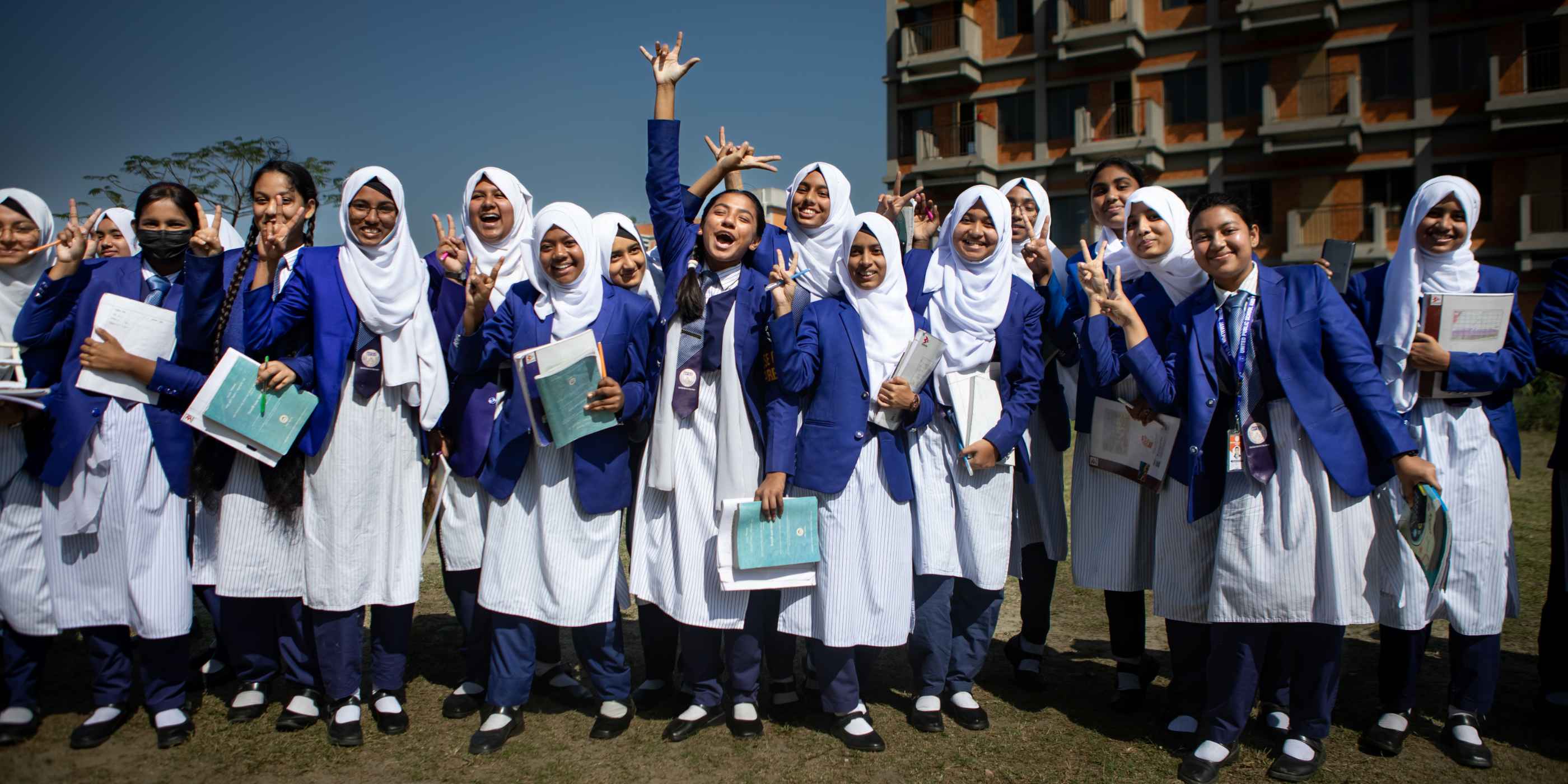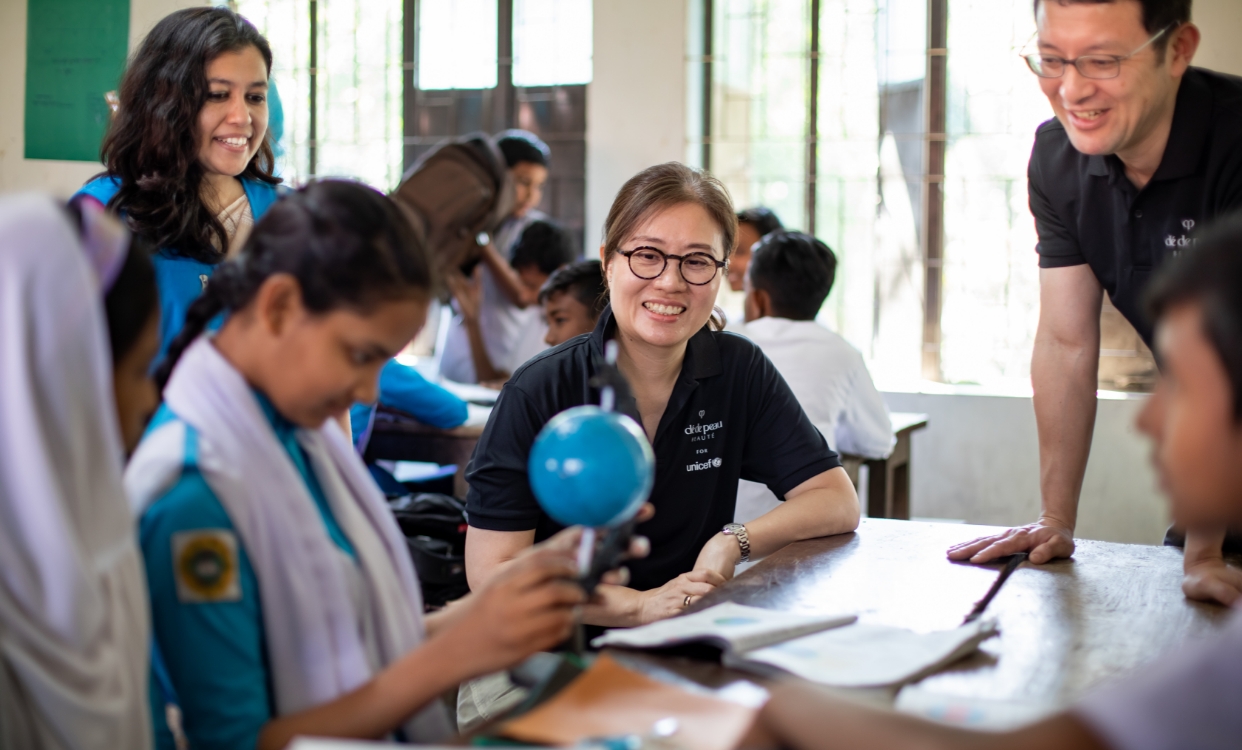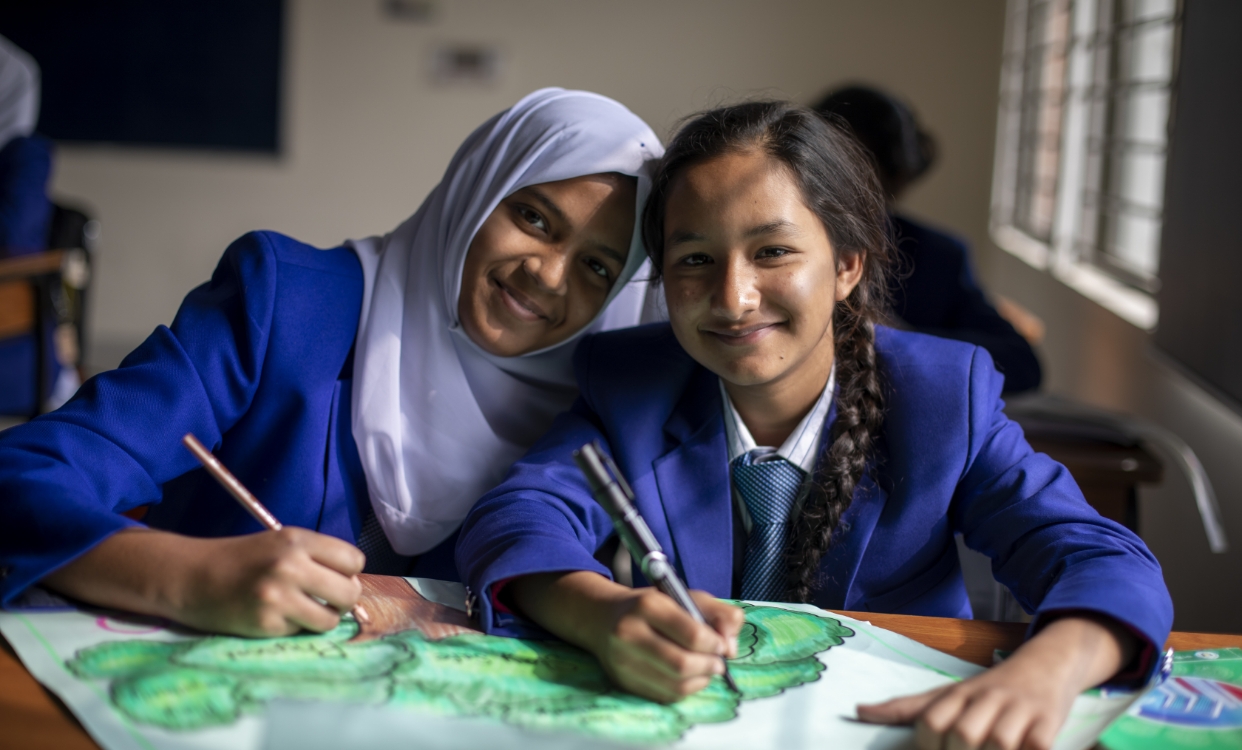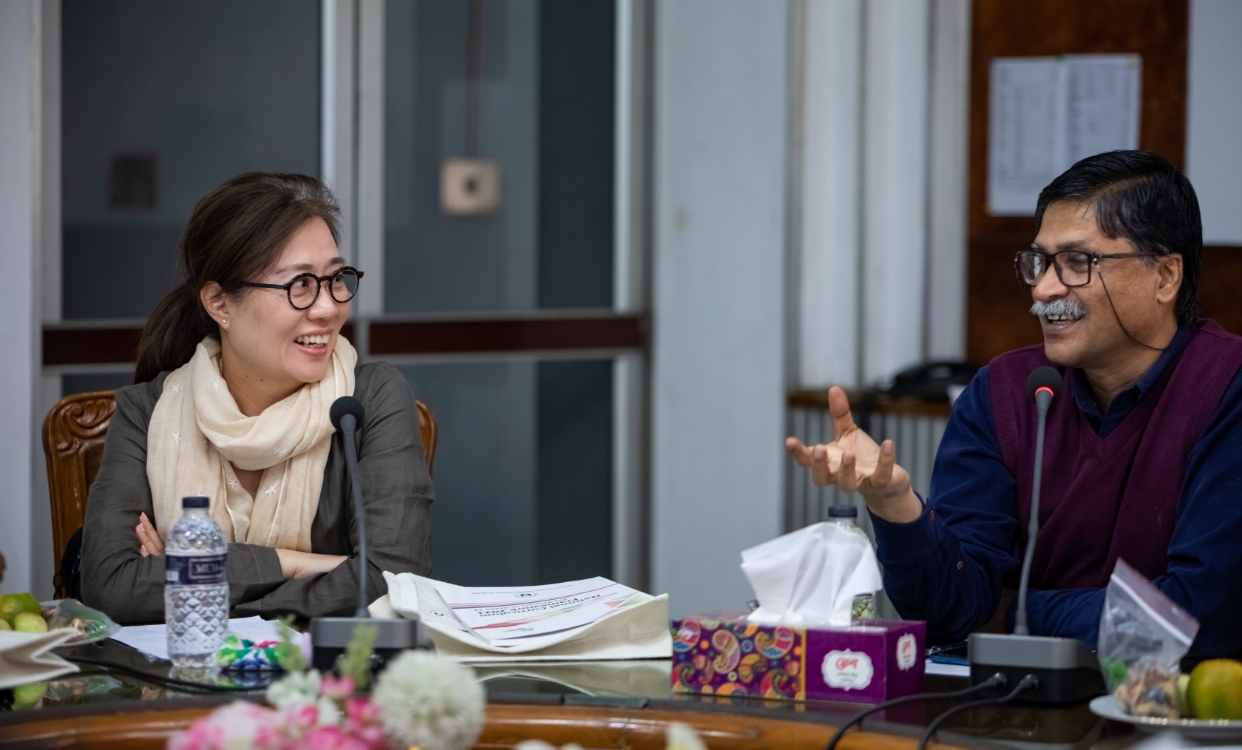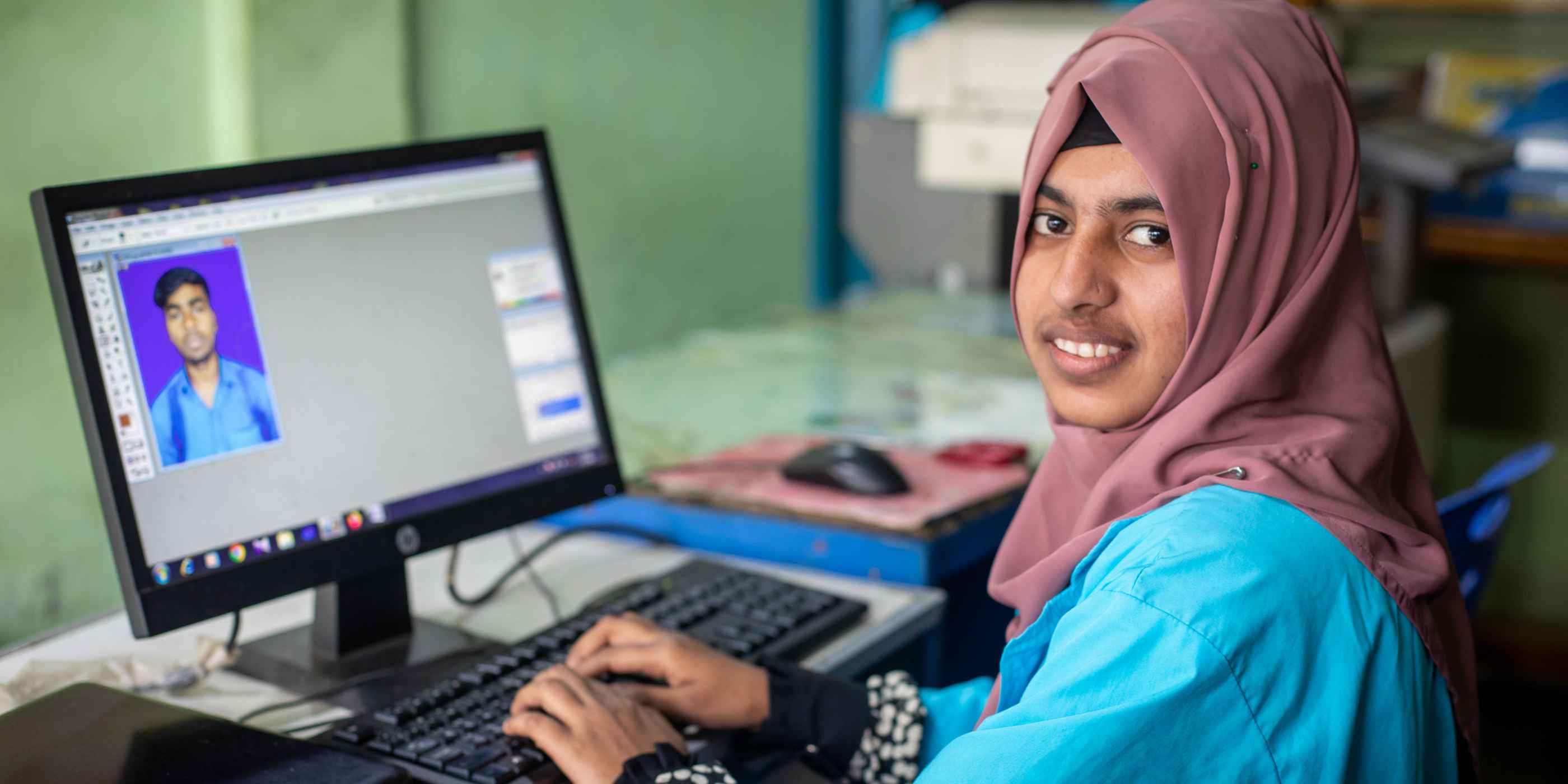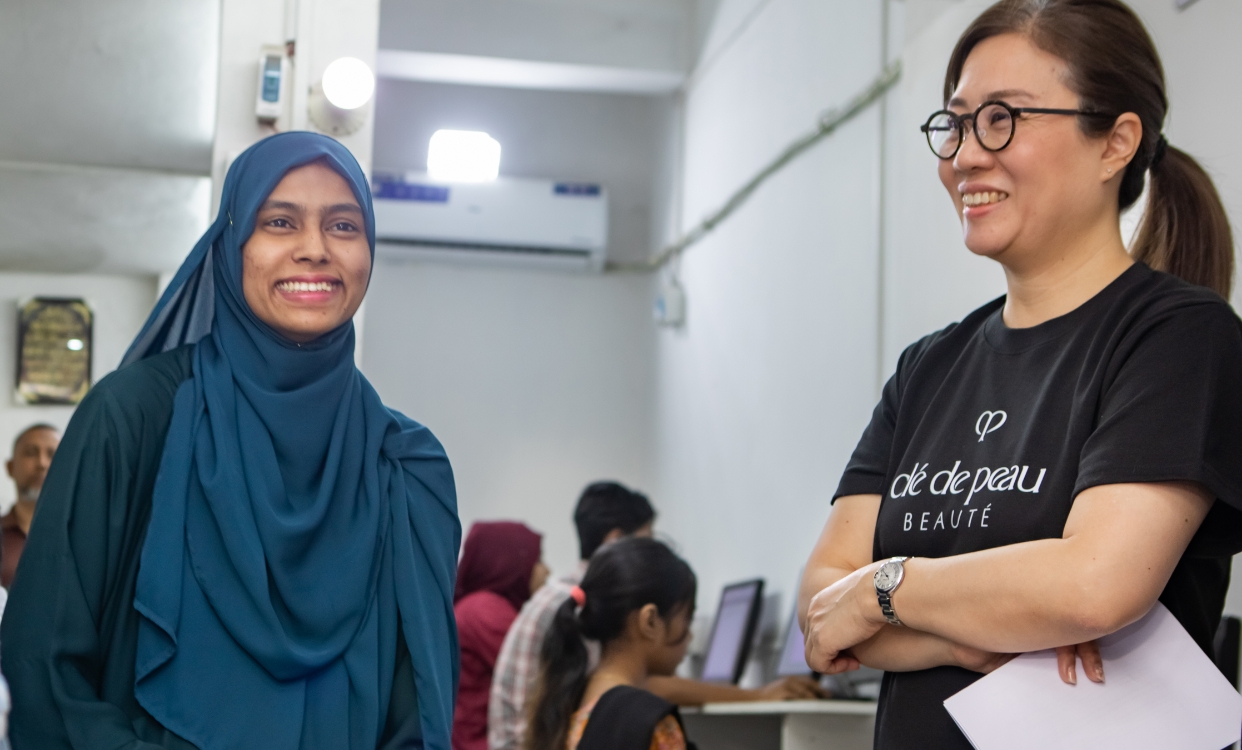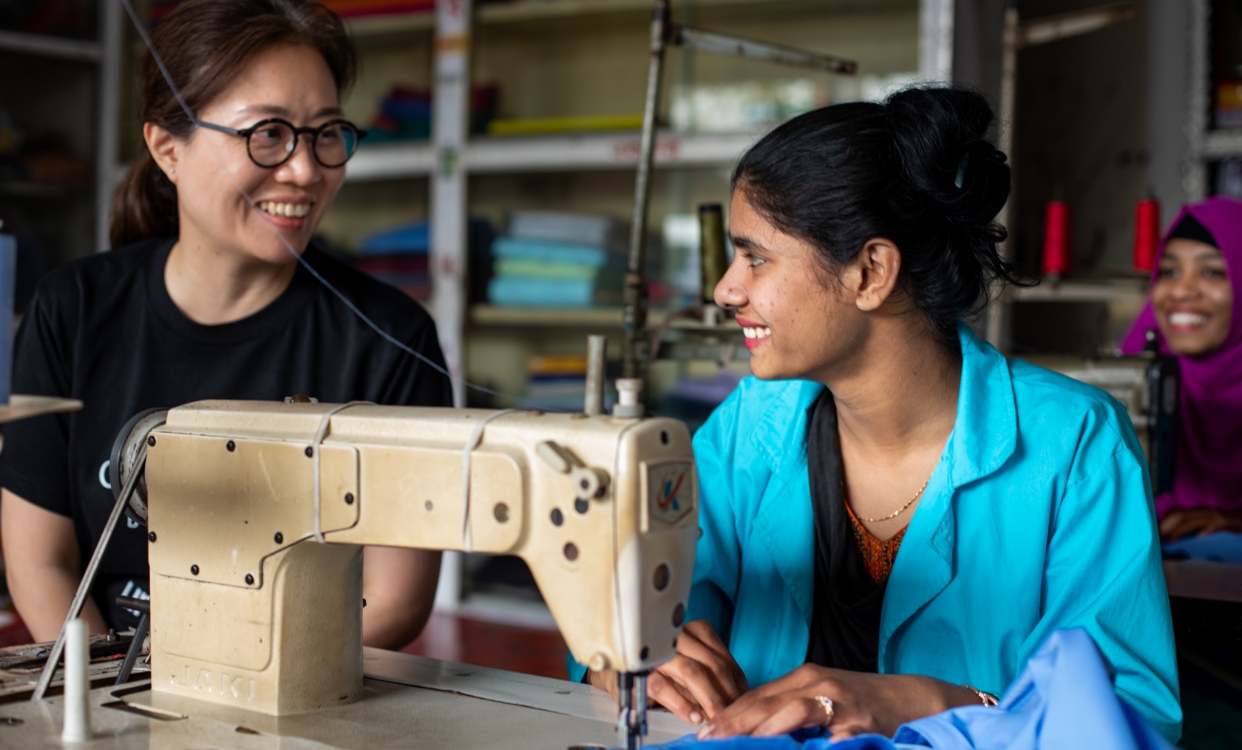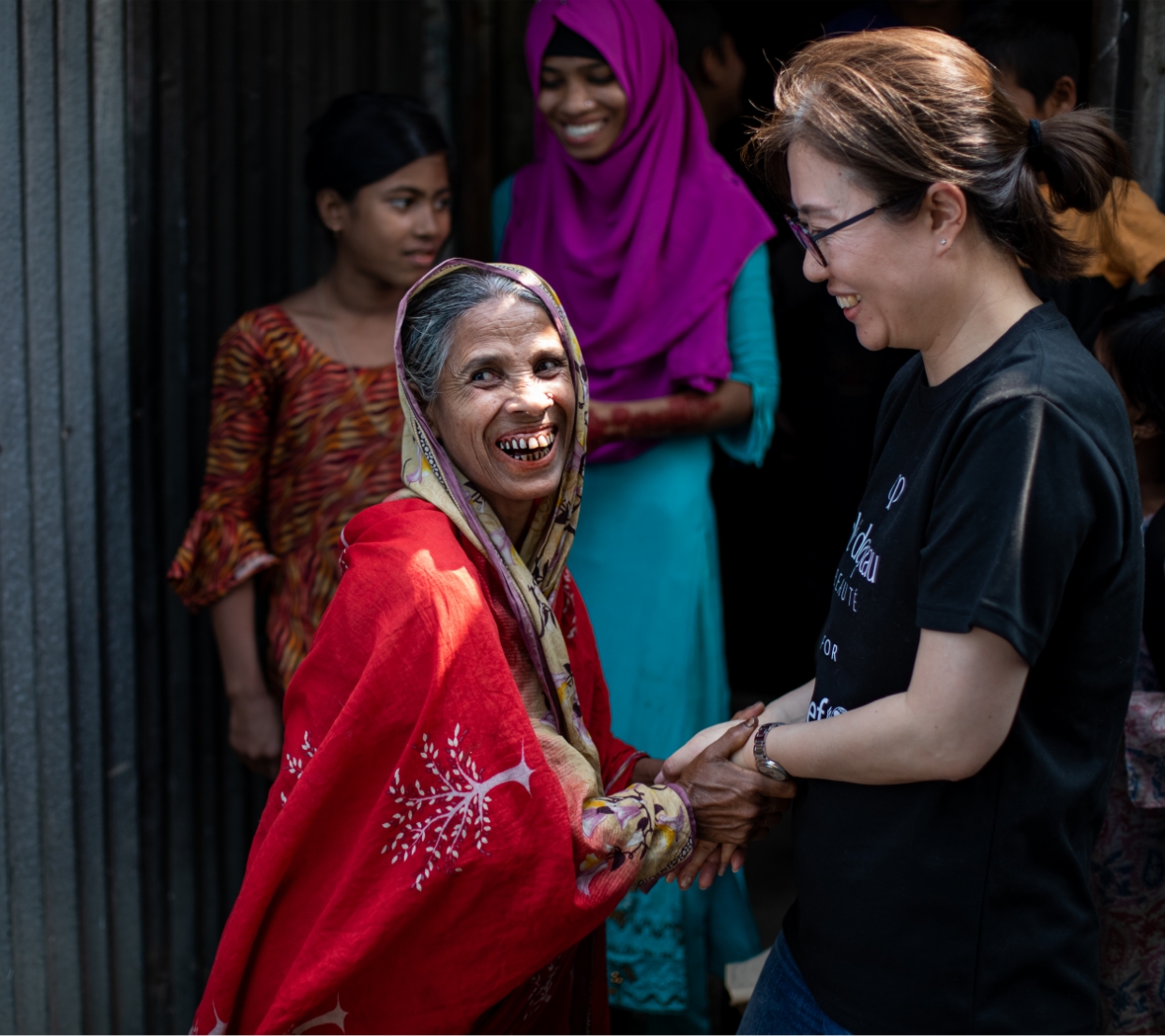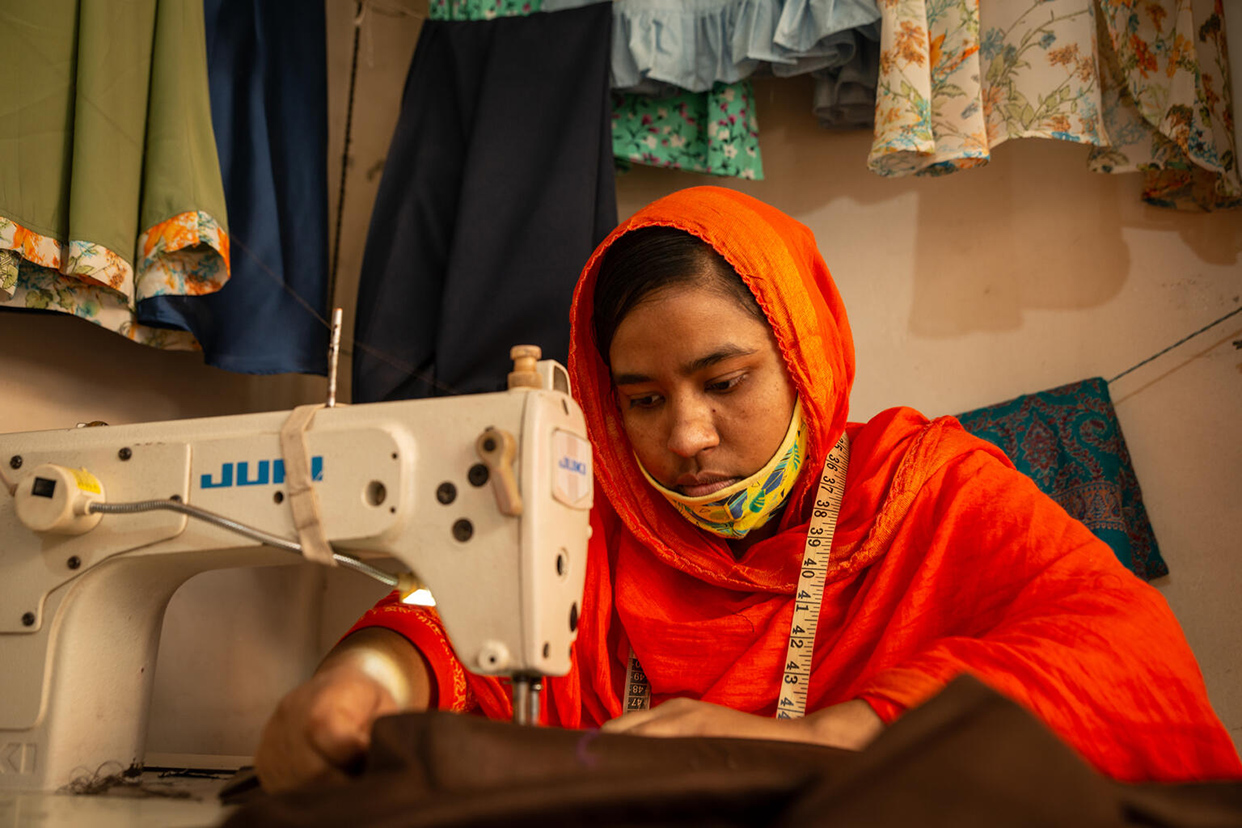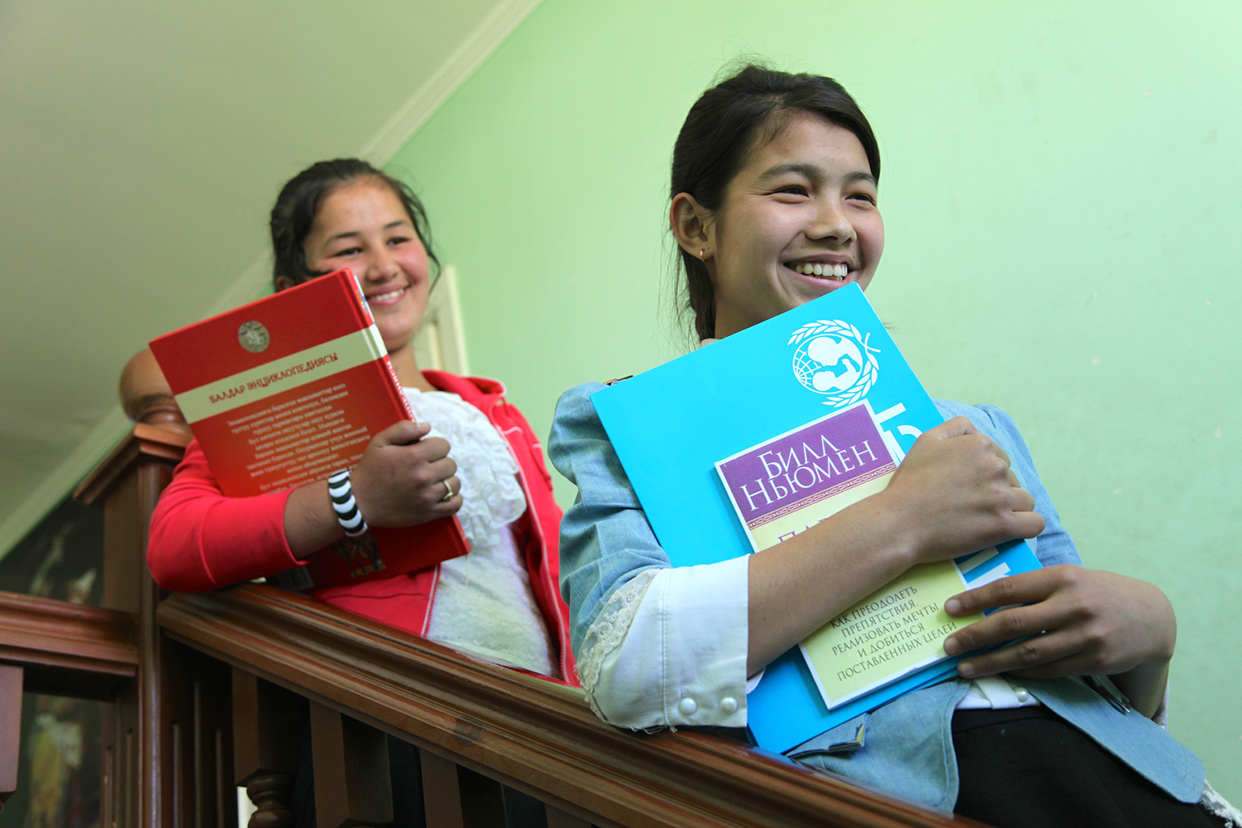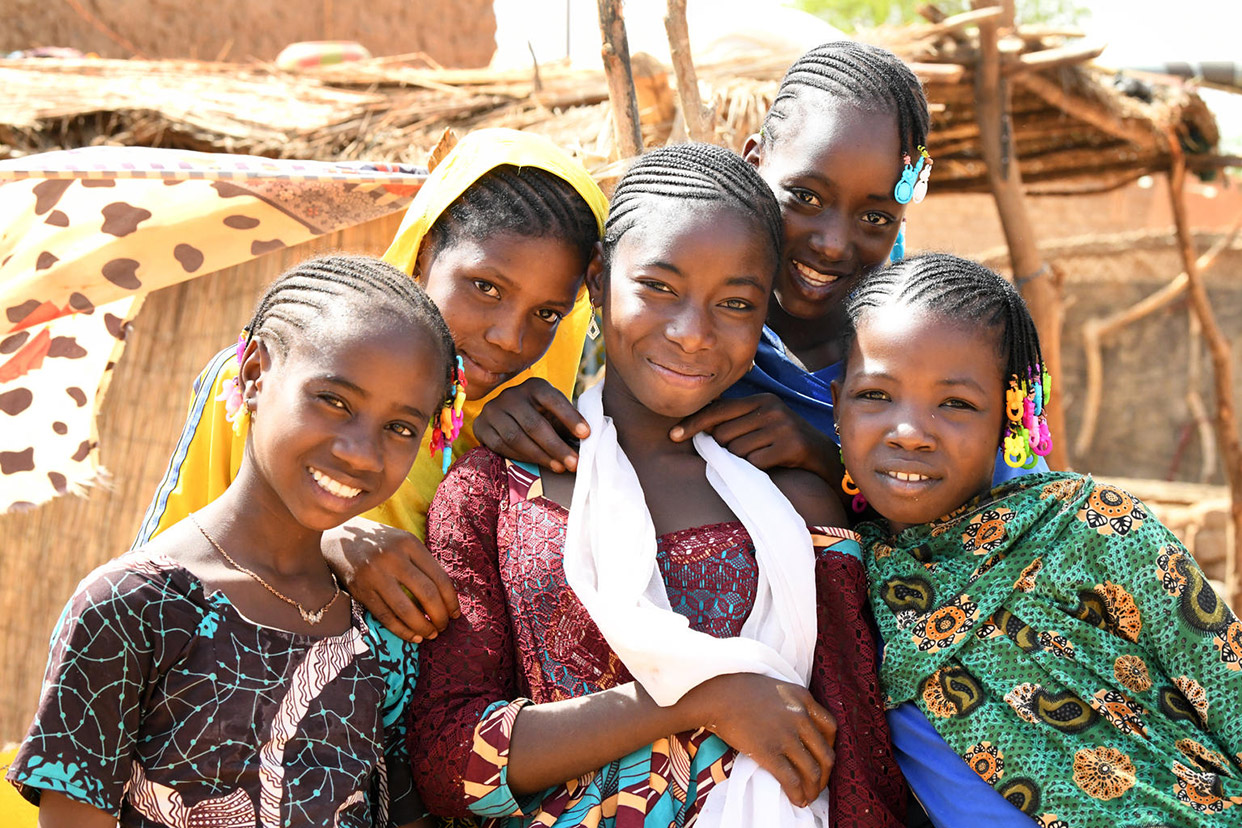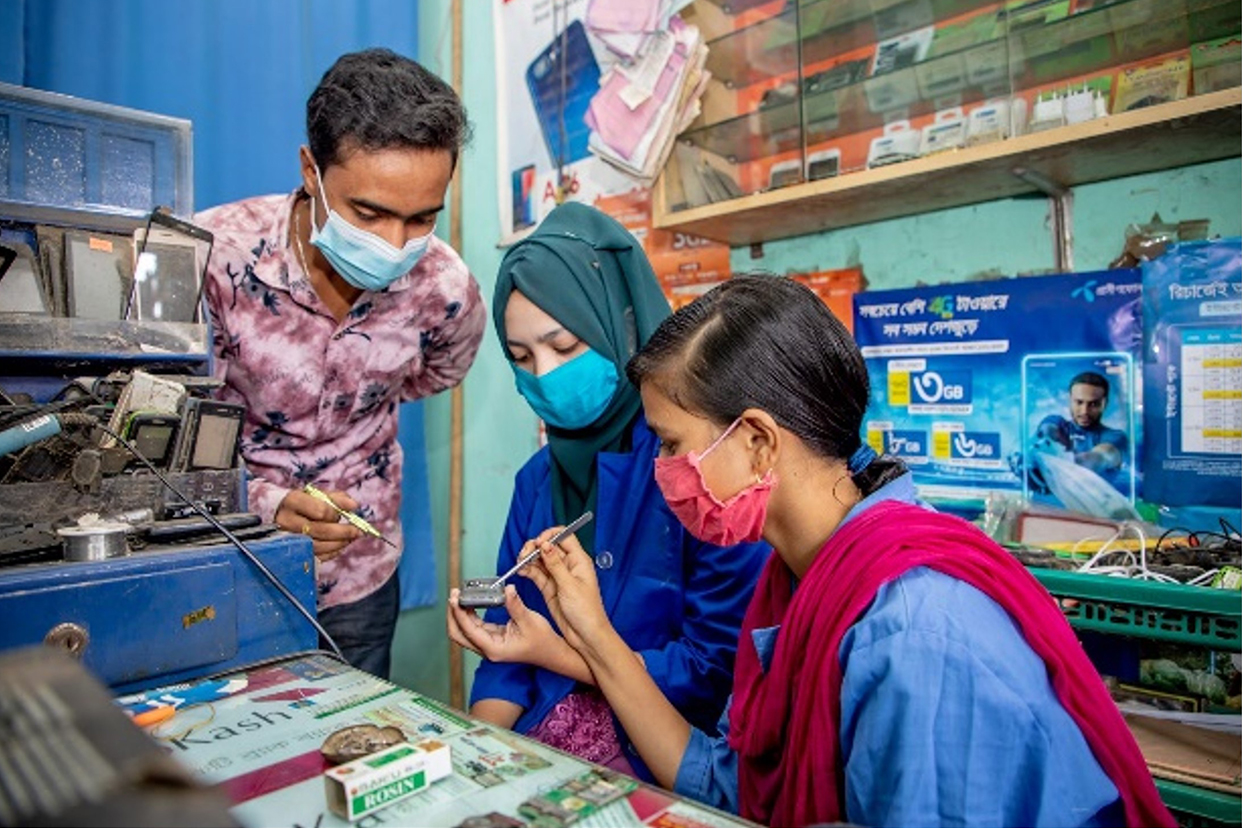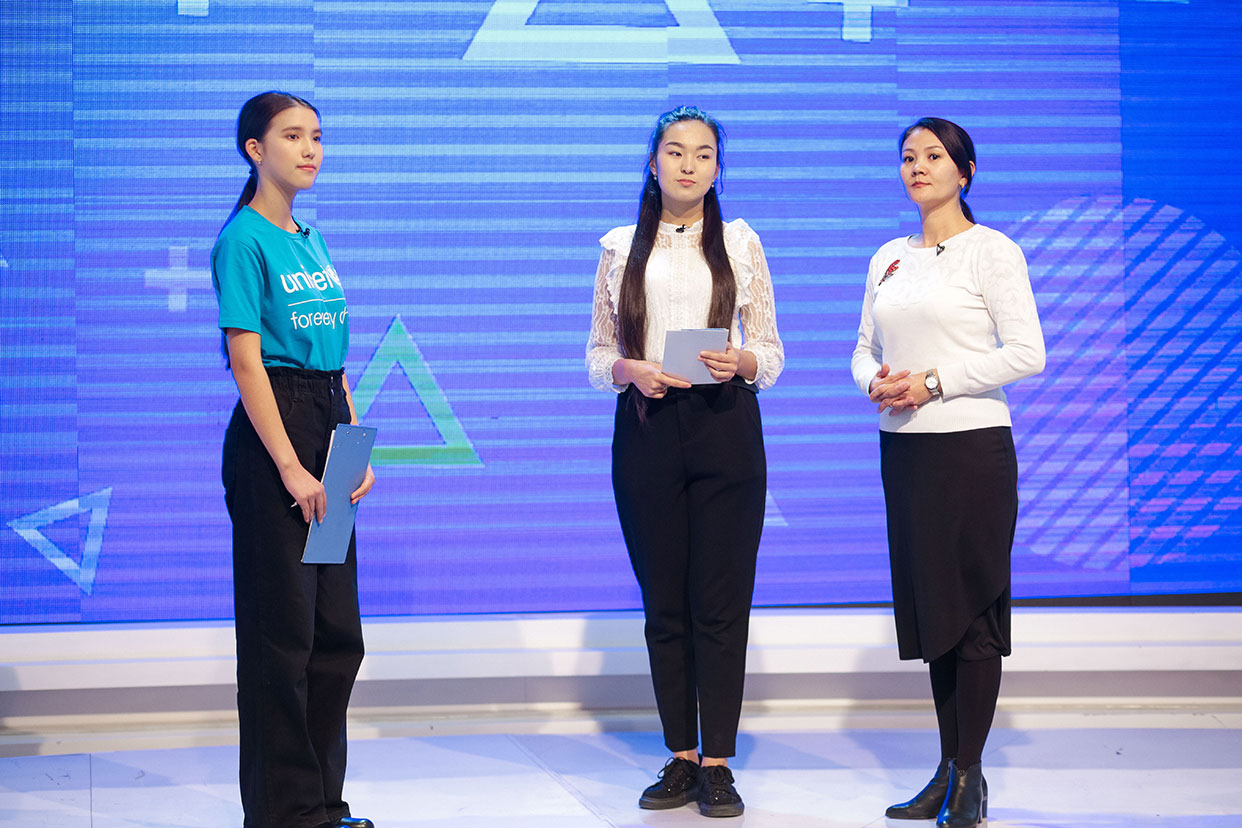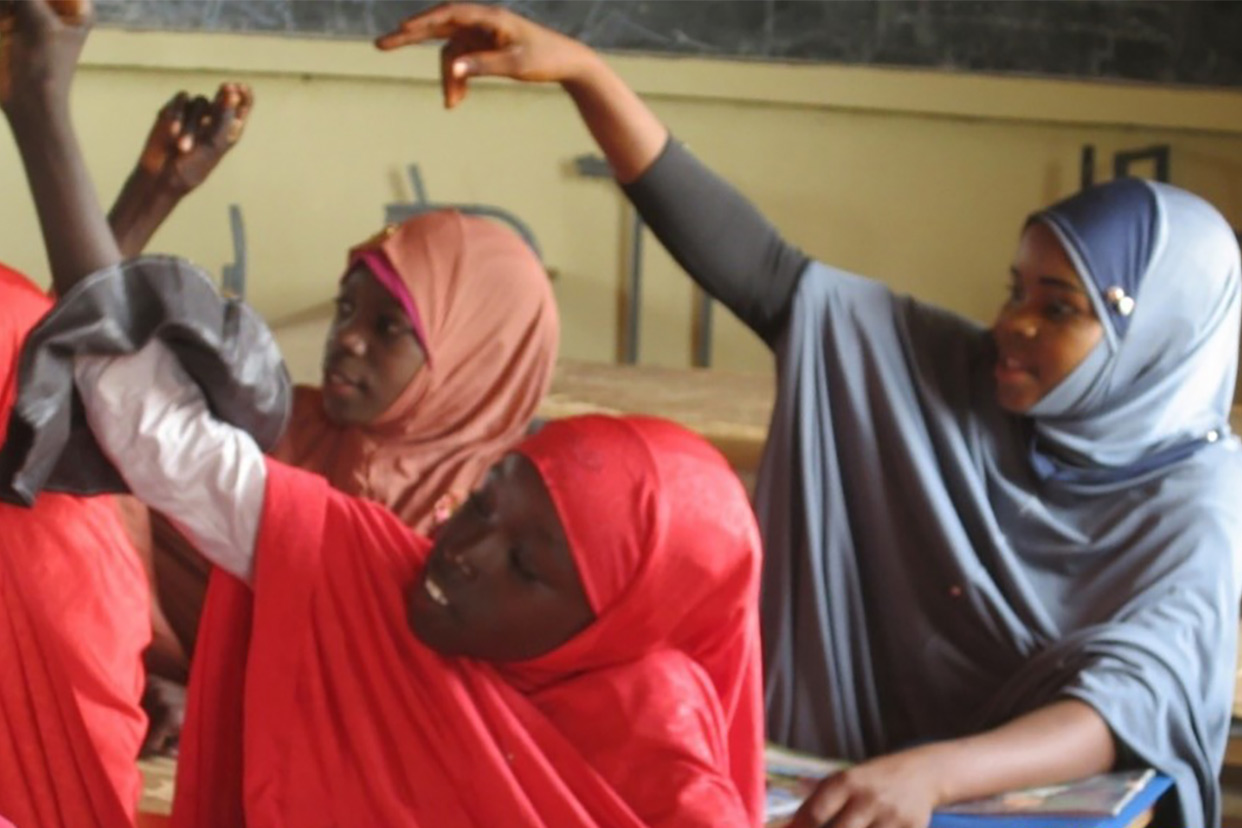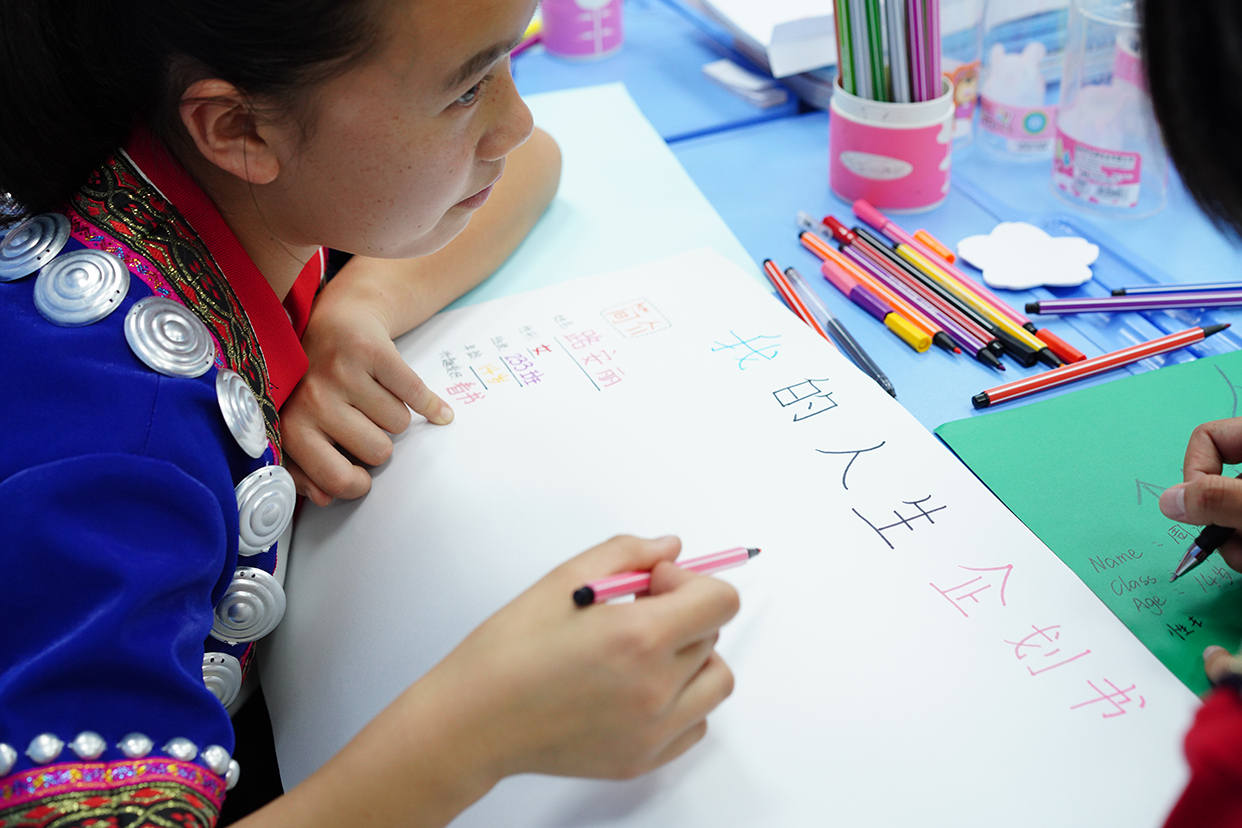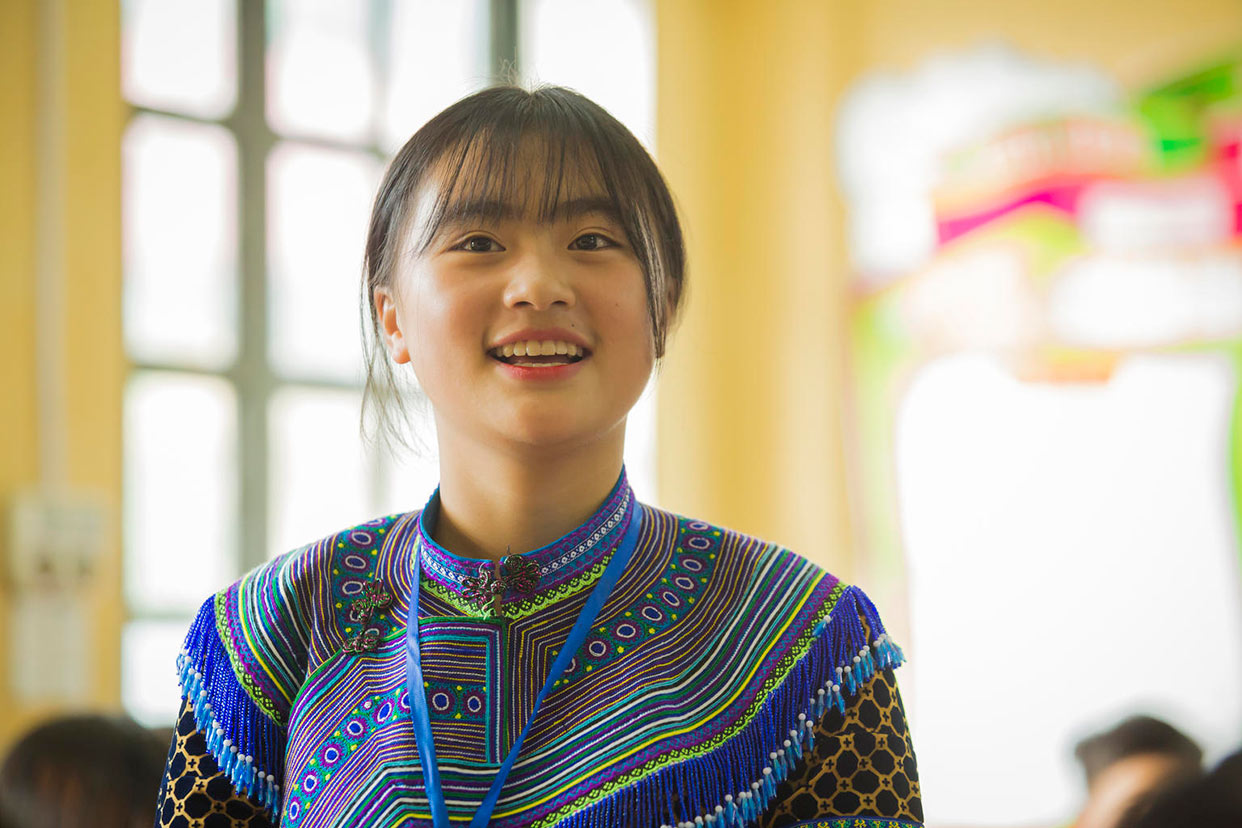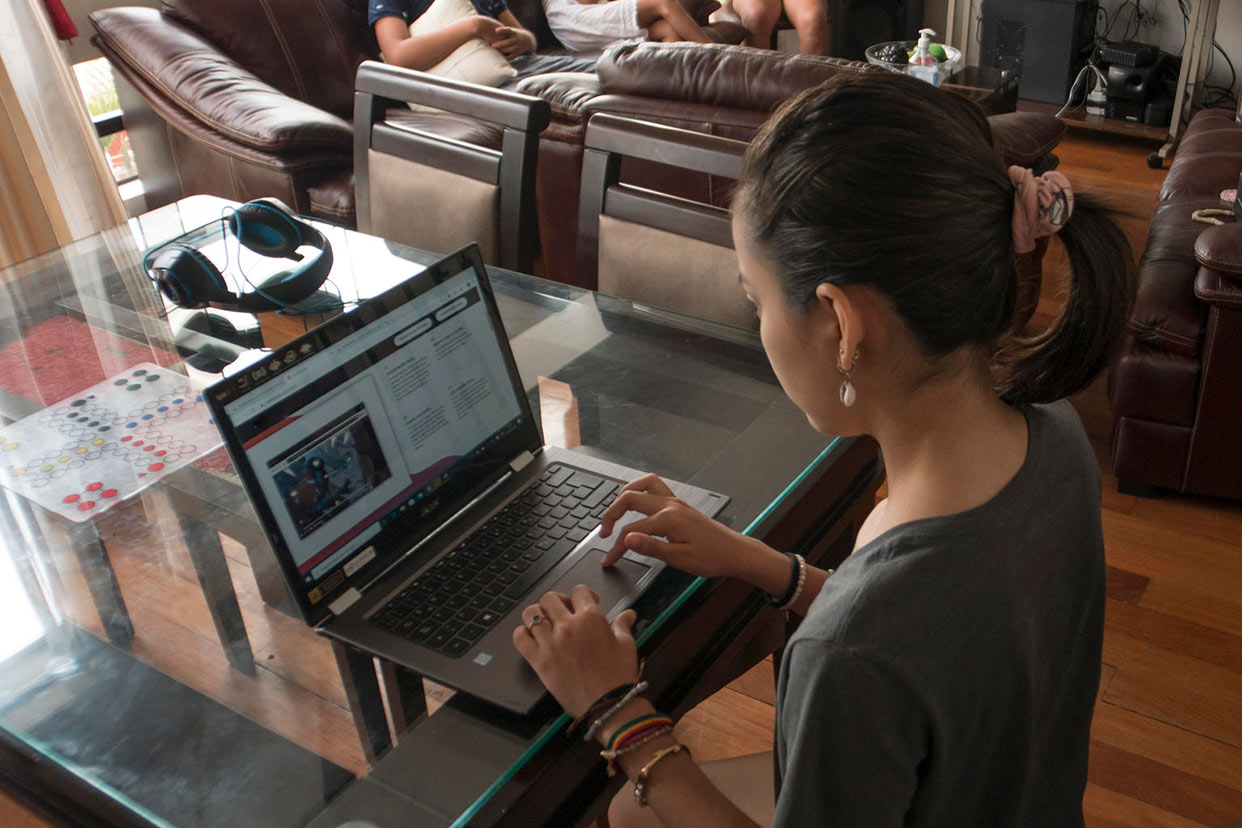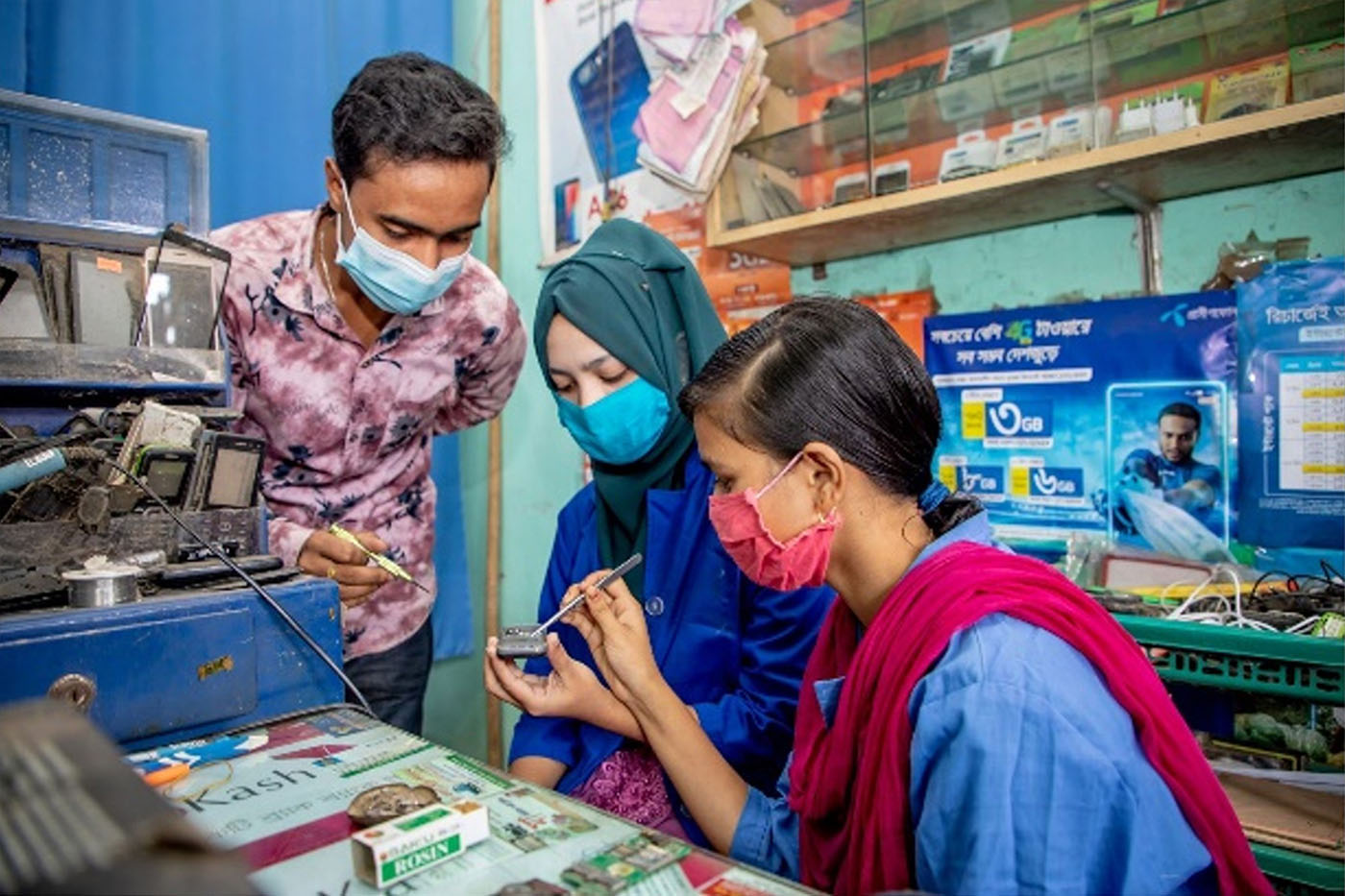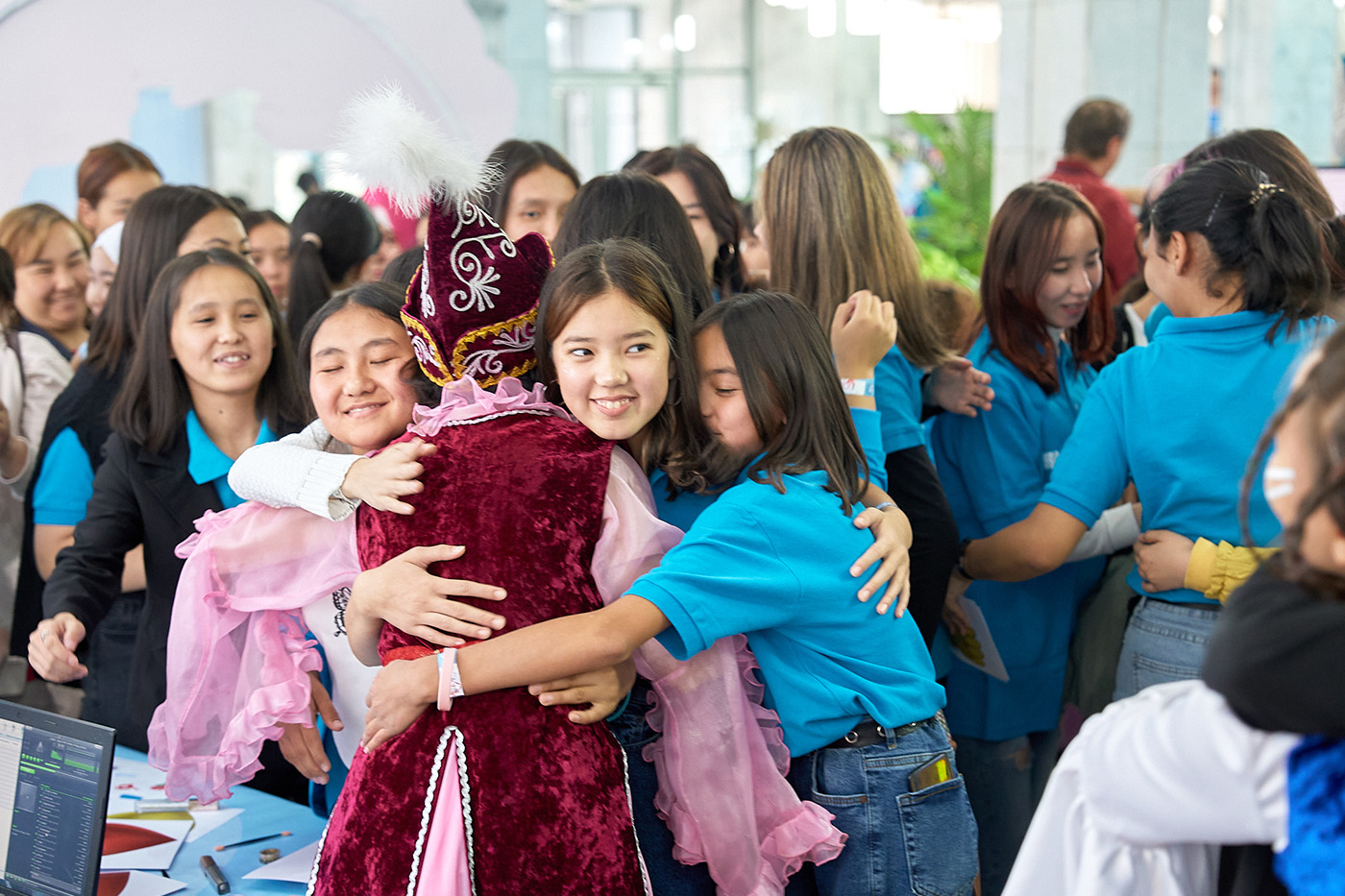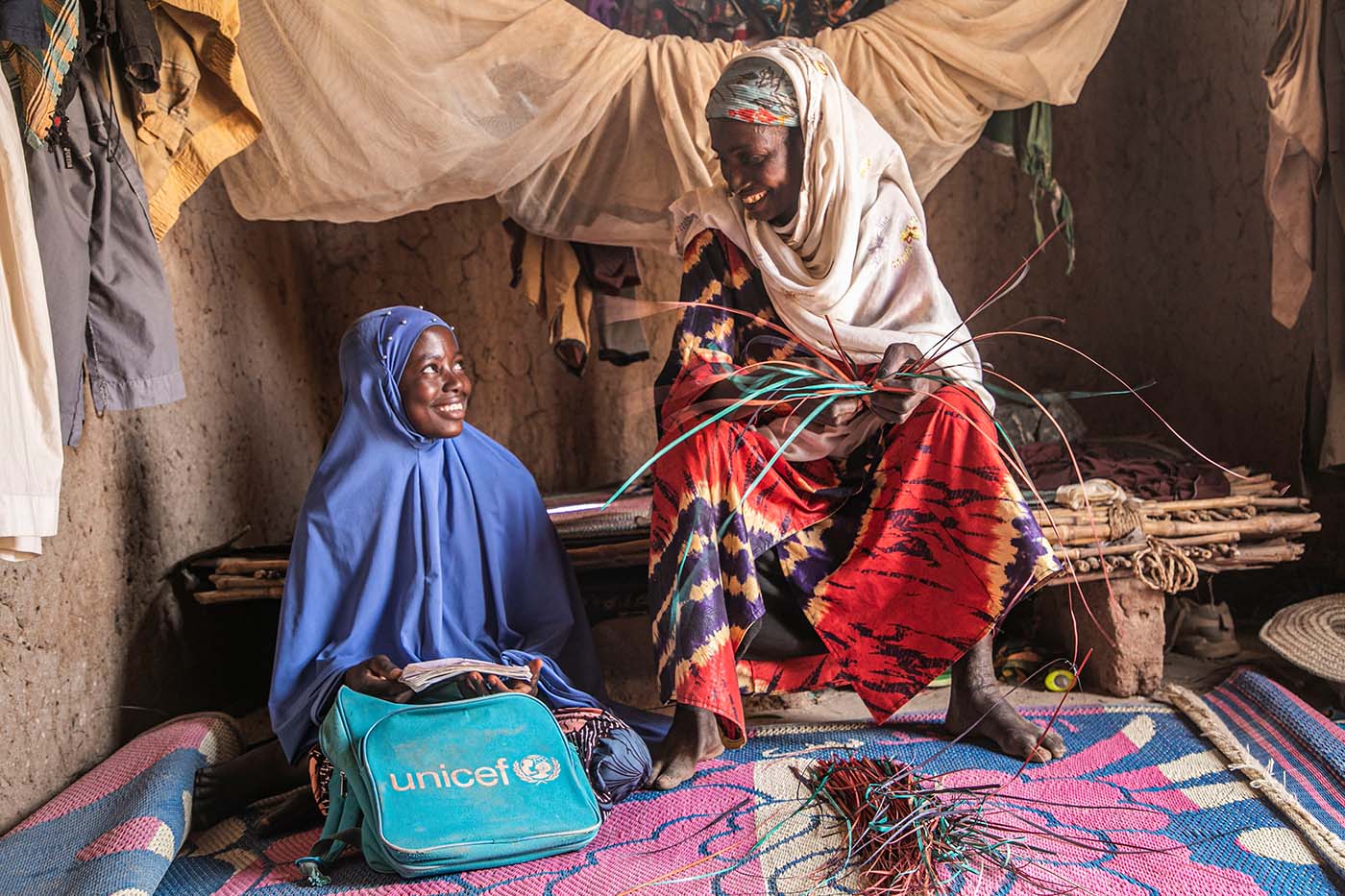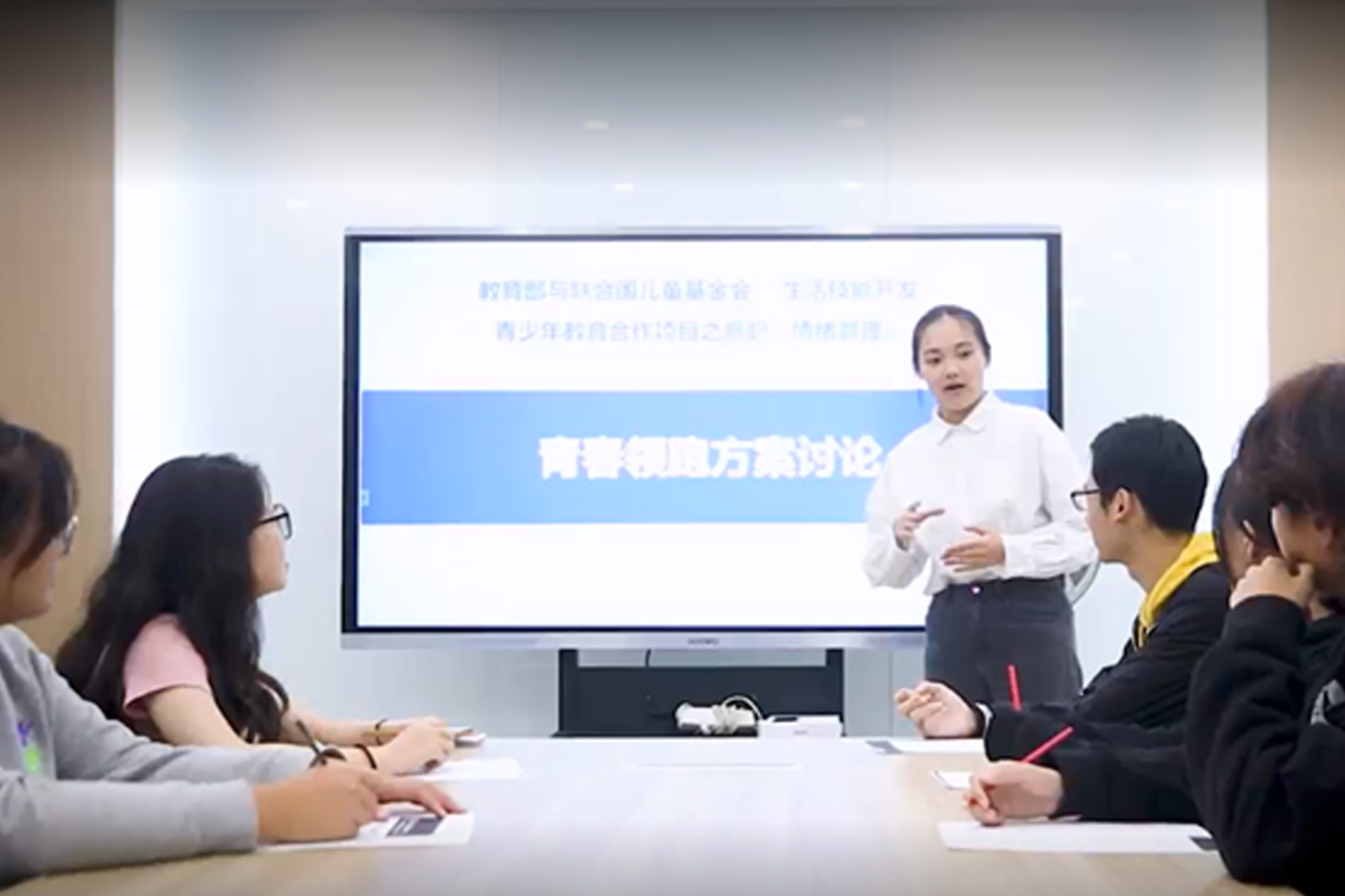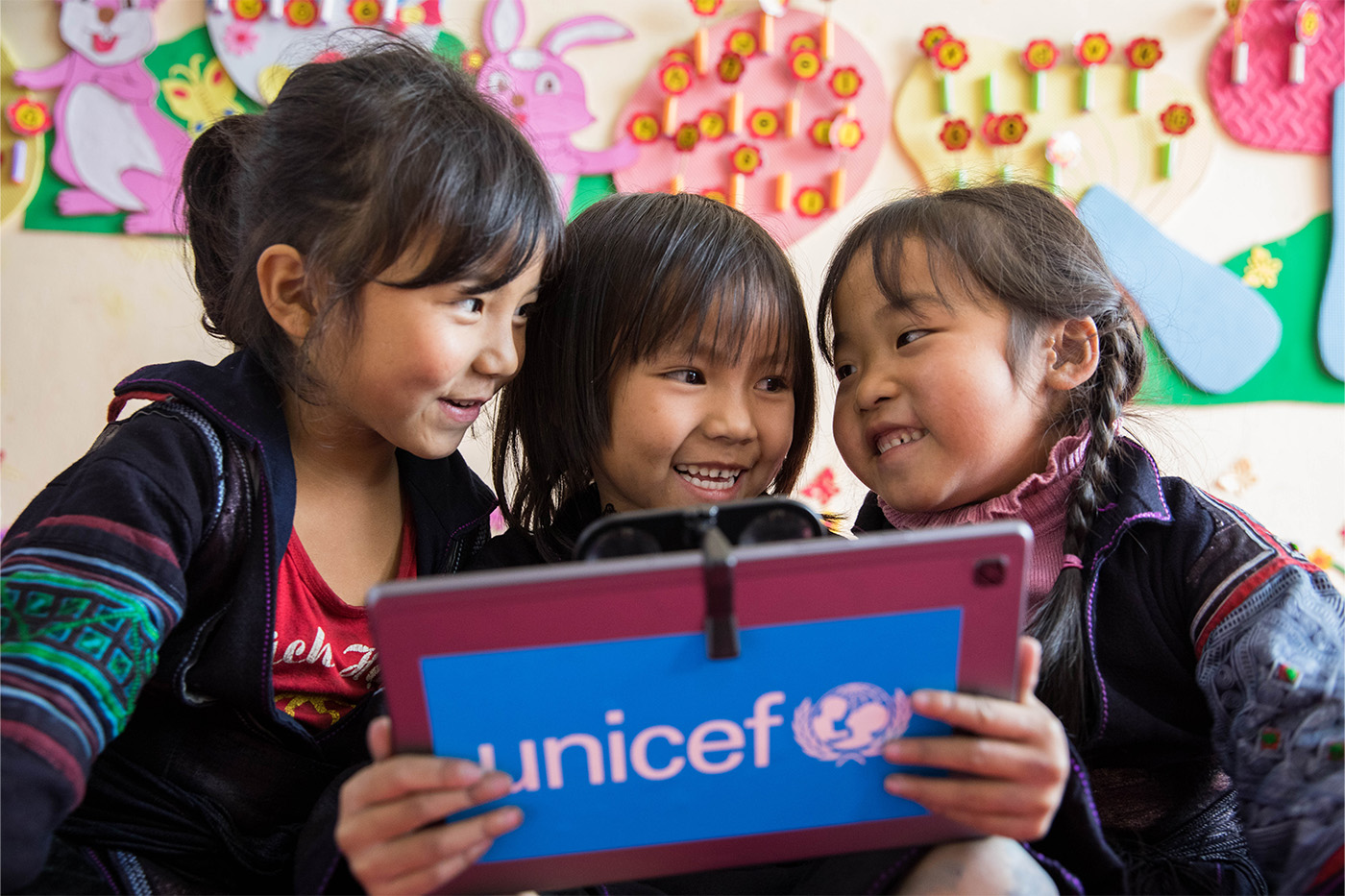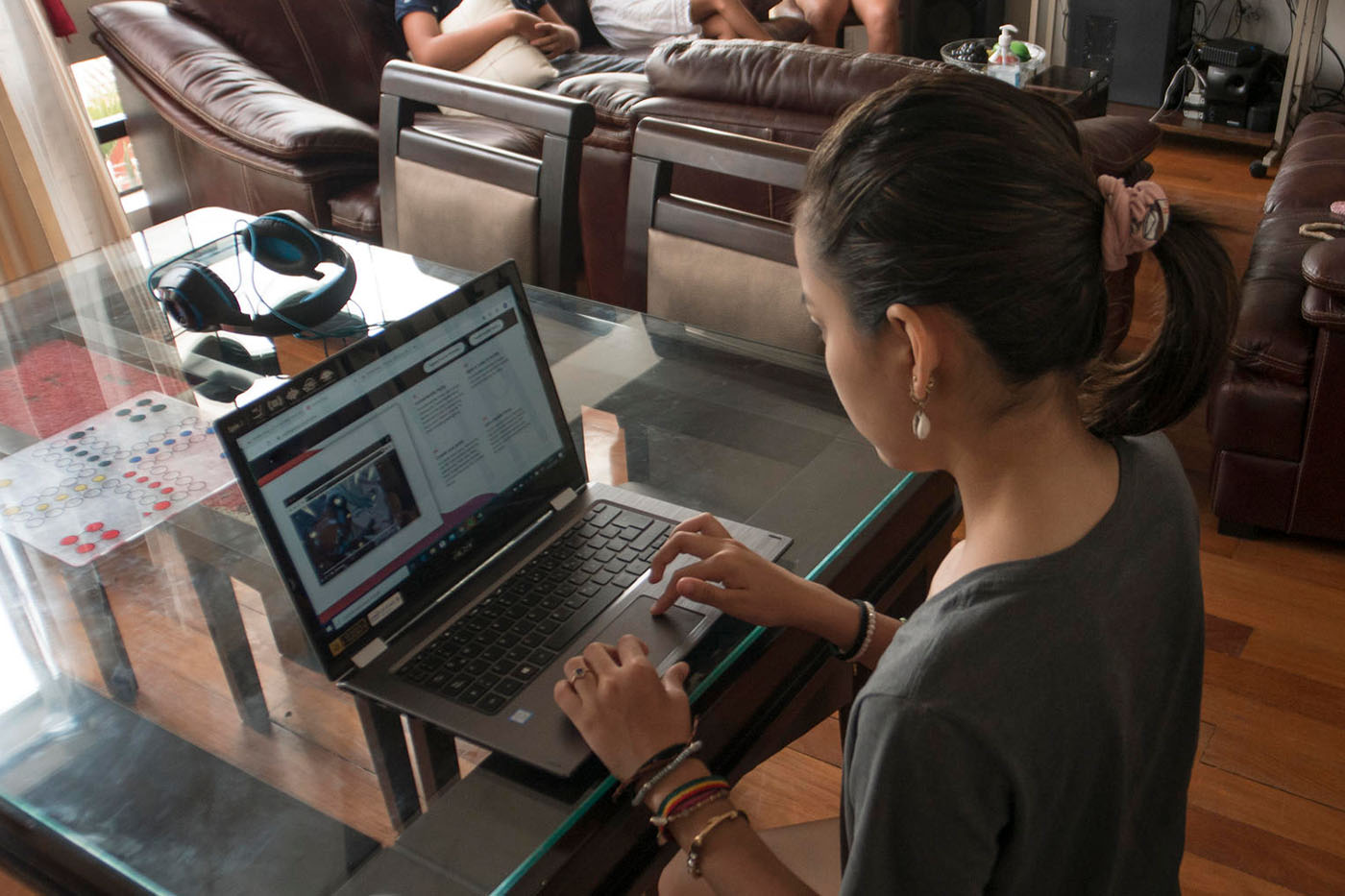CLÉ DE PEAU BEAUTÉ
EMPOWERS GIRLS
THROUGH EDUCATION.

EDUCATION IS THE KEY TO UNLOCKING GIRLS’ POTENTIAL,
OPENING THE DOOR TO A BETTER FUTURE
In 2019, we entered a three-year partnership
with UNICEF working to address
the global education gender gap
with a specific focus
on STEM (Science, Technology,
Engineering and Mathematics).
In 2023, to further our long-term commitment
to girls' education, we renewed
this impactful partnership
and set the goal of benefiting 5.7 million
more girls around the world by 2025.
In 2023 alone, our partnership
with UNICEF has reached more than
3 million girls globally, working to close
the STEM education gender gap
and achieve
UN Sustainable Development Goals
#4 (Quality Education)
and #5 (Gender Equality).
To fund this ongoing partnership work,
we have pledged a combined
total of US$17.4 million,
the world's largest private sector contribution,
to UNICEF’s Gender Equality Program.

UNICEF's Programs
We are supporting UNICEF
to unlock potential
and create a brighter future for girls
in Bangladesh, Kyrgyzstan,
and Indonesia through UNICEF Programs.
Our support helps provide access to quality
digital skills training, technologies,
and social entrepreneurship opportunities
to enable girls lead empowered lives.
© UNICEF/UN0464804/Himu
UNICEF's Gender Thematic Fund
We are proud to partner with UNICEF
to help girls in China,
Kazakhstan, Lao PDR, Namibia,
Niger, Peru, Uzbekistan,
and Vietnam gain access to
transformative STEM education programs.
By supporting this work
and UNICEF’s Gender Thematic Fund,
we are helping to unlock potential
and create a brighter future
for girls the world over.

© UNICEF/UN0259171/Viet Hung
LEARN MORE ABOUT
OUR PARTNERSHIP
WORK AROUND THE WORLD
Click to find out more about
the countries we support.
![]() : UNICEF Programs
: UNICEF Programs
![]() : UNICEF Gender Thematic Fund
: UNICEF Gender Thematic Fund


Peru
Offering digital training
and advocacy activities to
promote girls’ STEM skills and learning.

Niger
Introducing STEM education training and
resources for adolescent girls from the
most vulnerable backgrounds.

Namibia
Strengthening STEM and skill education
programs and teacher trainings to ensure
support for girls and maximize access to
the services and opportunities they need.

Uzbekistan
Rolling-out an essential digital skills
curriculum to build
entrepreneurship among
the next generation and fostering
opportunities for cross-cultural exchanges,
internships and scholarships.

Kazakhstan
Developing girls’ STEM
skills through
the Game Changers Coalition,
to provide girls with access to
a network of peers, trainings,
and events designed to nurture
their interest in STEM.

Kyrgyzstan
Enhancing STEM education,
career guidance,
and a nuanced understanding of
gender norms
through a growing community of
peer trainers.

Bangladesh
Collaborating with the National Curriculum
and Textbook Board to implement
gender-transformative curricula while extending
Alternative Learning Program,
trainings and mentorships to the most at-risk,
out-of-school girls.

China
Reducing gender disparities
in STEM education,
particularly for rural adolescent girls,
through gender-responsive teaching,
public advocacy,
and activities tailored to girls' needs.

Lao PDR
Advancing educational resources for
adolescent girls in real-life STEM subjects
including biology,
health and climate change.

Vietnam
Improving gender-responsive education
focusing on promoting STEM,
digital literacy,
and other vocational skills.

Indonesia
Engaging students,
teachers and tutors with a focus on
boosting digital
and entrepreneurial skillsets.
* This map is stylized and not to scale. It does not reflect a position by UNICEF on the legal status of any country, or area, or the delamination of any frontiers.
A CLOSER LOOK
Clé de Peau Beauté for UNICEF in Action: Bangladesh
Bangladesh faces persistent barriers to girls’
access to education
which lead to
lower enrollment rates
and higher dropout rates.
The Clé de Peau Beauté for UNICEF
partnership is taking a unique approach
to
dismantle these barriers by empowering
girls with essential skills,
while fostering
gender-inclusive education.
DISCOVER
OUR JOURNEY
ARCHIVES
JOIN US IN
UNLOCKING THE
POWER OF GIRLS

ABOUT UNICEF
UNICEF works in some of the world's
toughest places, to reach the world's most
disadvantaged children.
Across more than 190 countries and
territories,
we work for every child,
everywhere, to build a better world
for everyone.
For more information about UNICEF
and its work for children visit
www.unicef.org.
Learn more about the partnership here.
UNICEF does not endorse any company, brand, product, or service.






